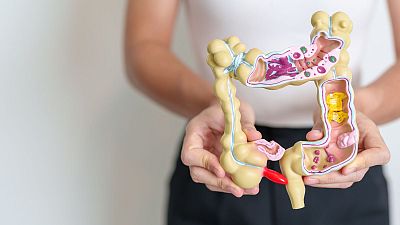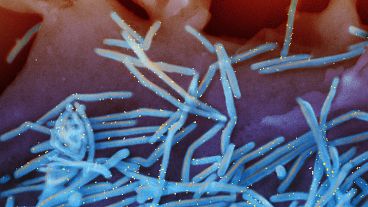Drinking alcohol, even in small amounts, raises the risk of breast cancer, the most common cancer among European women.
Breast cancer is the most common cancer among women and alcohol consumption is a major risk factor for it.
Yet there’s a lack of awareness about that risk, the World Health Organization (WHO)’s European office warned on International Women's Day.
"It’s high time for everyone to acknowledge that alcohol is a major risk factor for breast cancer," said Dr Hans Kluge, WHO Regional Director for Europe.
“International Women’s Day is a unique opportunity to remind ourselves of alcohol’s link, not just to breast cancer, but indeed all cancers”.
Research shows that there is no “safe” amount of alcoholic drinks and even a small amount of alcohol is linked to an increased risk of breast cancer in women.
But nearly 80 per cent of women surveyed across 14 European countries were unaware of that risk, a recent study showed, despite the more than 600,000 cases of breast cancer being diagnosed in 2022 in Europe.
"Considering that Europe has the highest drinking levels in the world, reducing or limiting our alcohol intake is a great place to start to reduce harms and prioritise health," Kluge added.
The risk goes up as alcoholic consumption increases.
Women who have three alcoholic drinks per week have a 15 per cent higher risk of breast cancer compared to non-drinkers, according to the charity Breastcancer.org.
In Europe, breast cancer represents 66 per cent of alcohol-related cancers among women.
How does alcohol consumption impact the body?
When we drink alcohol, the body breaks down ethanol into a substance called acetaldehyde, which can damage our DNA - the genetic material in our cells. This can lead to mutations which in turn can sometimes cause cancer.
Alcohol can also interfere with the body's ability to break down estrogen, a hormone that can stimulate the growth of some breast cancers.
Though estrogen is naturally produced in the body, alcohol consumption can increase the levels of circulating estrogen in the bloodstream and reduce the body’s ability to metabolise it, according to the US medical centre the Cleveland Clinic.
Roughly 70 to 80 per cent of breast cancers are sensitive to estrogen, meaning that the tumourous cells will react to the hormone by growing and multiplying, according to the charity Breastcancer.org.
In a statement, the WHO insisted on the need for gender-specific approaches in public health strategies related to alcohol consumption as “substances often affect men and women differently due to differences in metabolism and body composition between the sexes”.
A recent study in the US found that even though men account for significantly more alcohol-related deaths, there is a higher rate of increase in deaths among women.
Though countries have committed to reducing cancer mortality and risk factors such as alcohol consumption, WHO said that “there have been no changes in alcohol consumption per capita in the European Union since 2010”.
“Therefore, there is an increasing urgency for governments to act immediately,” the WHO added.
Kluge said that the organisation was "urging countries to introduce clear warnings on alcoholic products like they already do with tobacco products".



